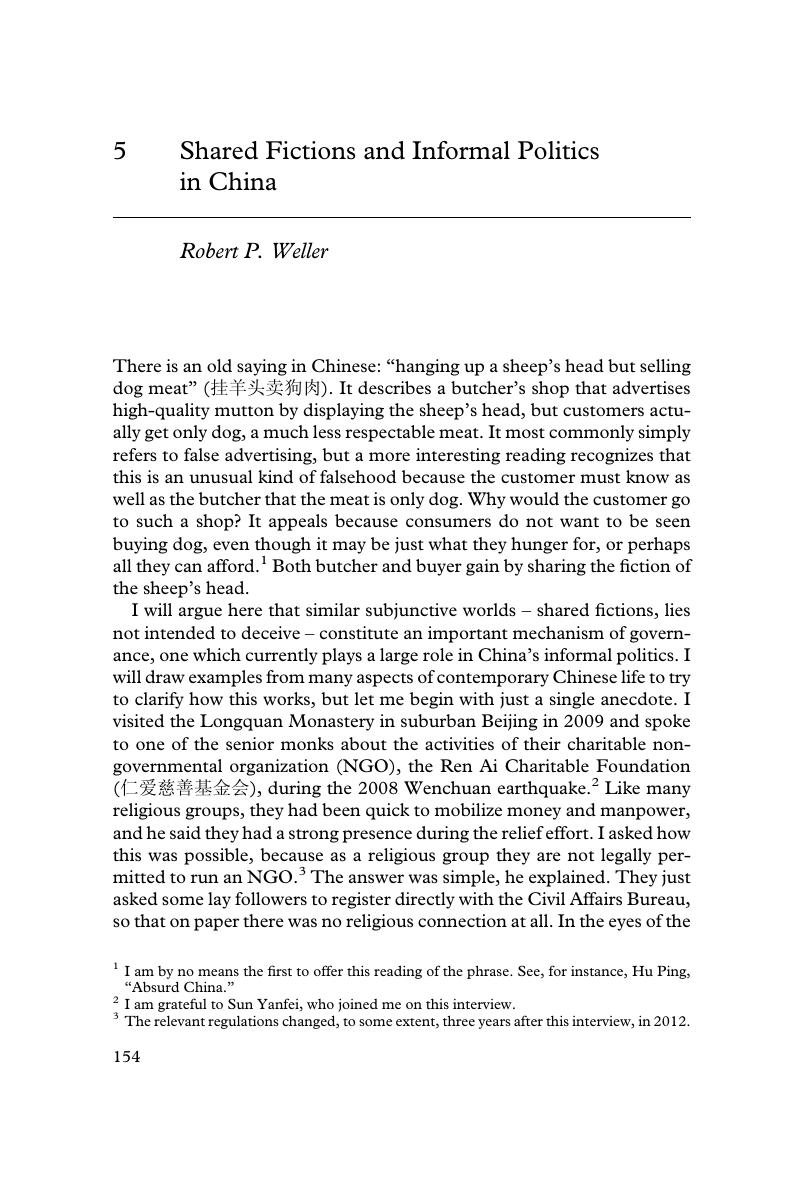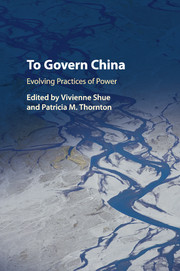Book contents
- To Govern China
- To Govern China
- Copyright page
- Dedication
- Contents
- Contributors
- Introduction: Beyond Implicit Political Dichotomies and Linear Models of Change in China
- I Leadership Practices
- II People’s Government
- Overseeing
- Overlooking
- 5 Shared Fictions and Informal Politics in China
- III Expedients of the Local State: Bargains and Deals
- IV Governance of the Individual and Techniques of the Self
- Index
- References
5 - Shared Fictions and Informal Politics in China
from Overlooking
Published online by Cambridge University Press: 25 October 2017
- To Govern China
- To Govern China
- Copyright page
- Dedication
- Contents
- Contributors
- Introduction: Beyond Implicit Political Dichotomies and Linear Models of Change in China
- I Leadership Practices
- II People’s Government
- Overseeing
- Overlooking
- 5 Shared Fictions and Informal Politics in China
- III Expedients of the Local State: Bargains and Deals
- IV Governance of the Individual and Techniques of the Self
- Index
- References
Summary

- Type
- Chapter
- Information
- To Govern ChinaEvolving Practices of Power, pp. 154 - 174Publisher: Cambridge University PressPrint publication year: 2017
References
- 1
- Cited by



